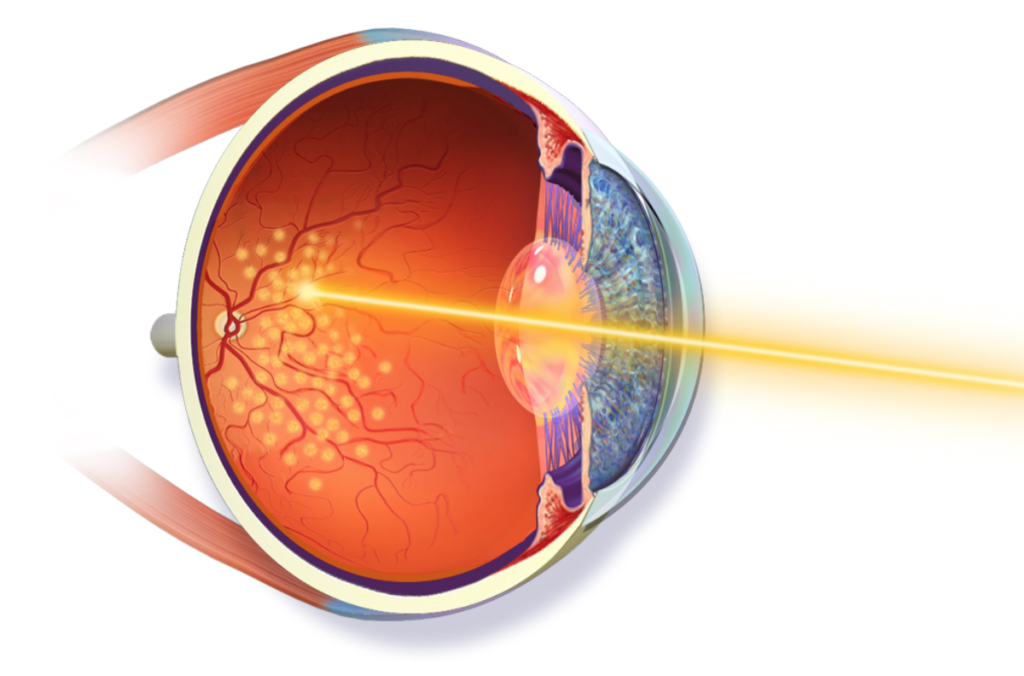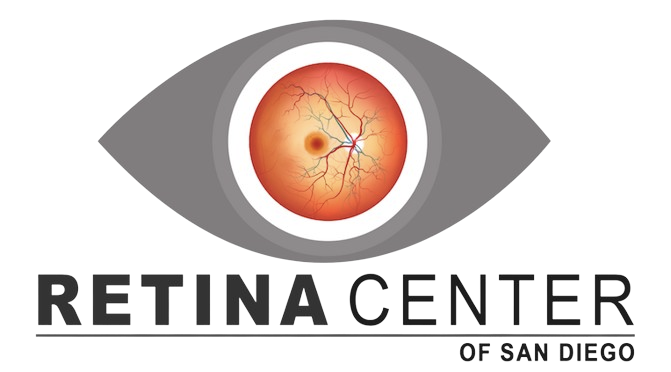Retinal Laser Treatment
What is Retinal Laser Treatment?
Laser treatment of the retina, also known as retinal laser photocoagulation, is a procedure used to treat various retinal disorders by applying a focused beam of light (laser) to specific areas of the retina. The laser energy creates small burns or scars on the retina, which can help to seal leaking blood vessels, destroy abnormal blood vessels, or induce changes in retinal tissue to alleviate symptoms or slow disease progression.
Process for Retinal Laser Treatment
We perform retinal laser photocoagulation in the office. Here’s an overview of how the procedure is done.
- Preparation: Before the procedure, we will dilated your pupil with eye drops to allow a complete view of the retina. You will receive anesthetic eye drops to numb the surface of the eye and prevent discomfort during the procedure
- Positioning: You will be positioned comfortably in a chair or reclining examination chair. We will use a special lens to focus the laser beam onto the retina.
- Laser application: Using a laser system specifically designed for retinal procedures, Dr. Haak will apply laser in controlled bursts of energy to the targeted areas of the retina. The laser creates small burns or scars on the retina, which can help achieve the desired therapeutic effect.
- Monitoring: Throughout the procedure, Dr. Haak will carefully monitor the laser application and adjust the settings as needed to ensure proper treatment. We may use imaging techniques such as fundus photography or fluorescein angiography to guide the laser treatment and assess the response.
- Post-procedure care: After the procedure, your eyes may be sensitive to light due to the dilation drops. You may experience some discomfort or mild irritation, which can usually be relieved with over-the-counter pain medication. We will provide specific instructions on post-procedure care, including any restrictions on activities and the use of eye drops.
- Follow-up: Depending on the condition being treated and the response to the laser treatment, you may need multiple sessions of laser therapy spaced out over time. We will schedule follow-up appointments to monitor your progress and adjust the treatment plan as necessary.
Overall, retinal laser treatment is a well-established and effective procedure for various retinal disorders, and it is generally considered safe when performed by skilled retina specialists. It’s important to follow your doctor’s recommendations for follow-up care to achieve the best possible outcomes.
Conditions treated with Retinal Laser Treatment
Here are some common conditions where retinal laser photocoagulation may be used:
- Diabetic retinopathy: Laser treatment can be used to seal leaking blood vessels and reduce swelling in the retina caused by diabetic macular edema (DME). It can also be used to destroy abnormal blood vessels in proliferative diabetic retinopathy (PDR) to prevent further vision loss.
- Retinal tears and detachments: Laser treatment may be used to create scars around retinal tears or breaks to prevent them from progressing to a retinal detachment.
- Macular edema: Laser treatment can be used to reduce swelling and fluid accumulation in the macula, particularly in cases of macular edema associated with conditions like retinal vein occlusion (RVO) or uveitis.
- Retinal vascular diseases: Laser photocoagulation may be used to treat conditions such as retinal vein occlusion (RVO) or retinal artery occlusion (RAO) by sealing leaking blood vessels or destroying abnormal vessels.
- Peripheral retinal disorders: Laser treatment may also be used to treat conditions affecting the peripheral retina, such as lattice degeneration or peripheral retinal tears, to reduce the risk of retinal detachment.










